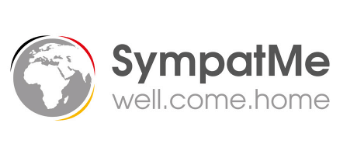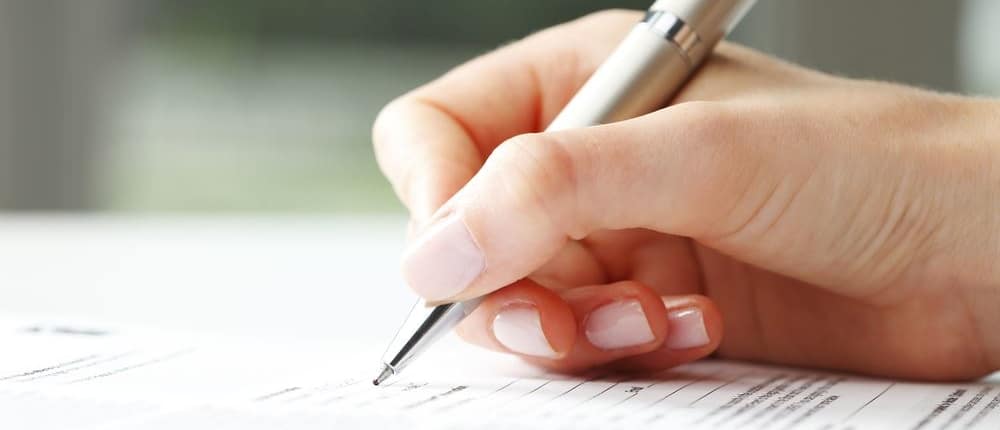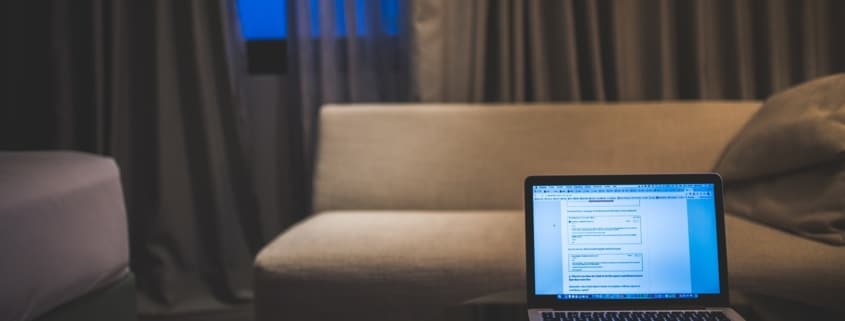How to rent an apartment in Germany
10 Tips
Renting a place in Germany is not as tough as you may think.
All you have to know is how things work over here. Most of the places get advertised via Facebook these days.
This is especially the case for sublets and rooms in a flat share.
So 1, 2, 3, goooo! Read the ten facts around renting a flat in Germany, with some special tipps for Berlin!
After that you’re equipped to go flat-hunting yourself. Good luck :)
Do you still need help with your move? Here you can find our top partner company Umzugsvergeich DE.
Get a moving quote:
- Free & without obligation
- Save up to 40% on moving costs
Good websites for finding a flat in Germany
Most people find their future homes on the internet in Germany. Here’s a listing of the top websites for finding accommodation in Berlin.
Some of them are in English, so they’re particularly useful for expats and students who don’t speak German.
English Housing Listings: At Home, Olx, Just Landed, Easy WG, Easyflatshare, dreamflat.de
German Housing Listings: Immobilienscout, Ebay Kleinanzeigen, WG Gesucht, Immowelt
Useful Facebook Groups: Short term accommodation Berlin, WG Zimmer Wohnung in Berlin, WG-Zimmer und Wohnungen Berlin, Berliner Wohnungsbörse
Note that more and more people use Facebook Groups to advertise their flats. It’s a fast and easy way to do so. This way you also avoid estate agent fees.
What documents you need for renting a flat in Germany
Before you can sign your rental contract, you normally have to provide a couple of documents for your landlord (Vermieter). These are the documents for renting a place in Berlin, Munich, Cologne,… – it’s roughly the same for all German cities!
1) Copy of your ID or passport (Ausweiskopie)
According to a new law, estate agents have to make a copy of your ID even if you just want to take a look at a flat. Your landlord is also likely to want a copy of your passport if you sign the tenancy agreement (Mietvertrag).
2) Confirmation of no rental debts (Mietkostenfreiheitsbescheinigung).
This document confirms that you do not owe your previous landlord any money and that you have always paid your rent on time. If you have lived in another country before, you should try to ask your previous landlord to write you a letter confirming that you have always paid the rent and that you have no outstanding debt.
It’s important that it’s in English, it is even better if you have a translation. Even if it seems a little silly, this confirmation is a vital part of securing a flat.
Remember that Germans are all about security, so they want to be sure you are reliable and pay your rent on time.
3) Salary confirmation (Gehaltsnachweis)
This confirmation shows that you have a fixed income. How to get this document? Your company should be able to give you a salary slip for the tax office (Finanzamt). Just make a copy of this document. It’s ideal if you can show pay slips for at least three months or more. If you are unable to provide pay slips you may have to show your landlord statements from your bank account, which show that you have sufficient money to cover the rental bills.
4) Bank statemements (Kontoauszüge)
Yes, this seems like quite an intrusion into your privacy. However, it is common that you have to prove that you can pay your rent!
Most landlords want to see your bank statement of the last three months to see that you have a regular income, or that you have sufficient savings to pay your rent (Miete). Without such a statement it might be difficult to be even considered amongst all the other interested parties.
Here you can open a German bank account online.
You may get away with showing bank statements from your bank back at home. As a student, you may have to give written proof that your parents give you consistent security, and show a bank statement of their account.
5) Documentation of your credit record / history (Schufa Selbstauskunft)
Normally, a landlord asks you for your Schufa record. Schufa is a privately held company in Germany that keeps track of people’s debts. As soon as you don’t pay rent, or miss out on other invoices, the Schufa company will be notified of this. So landlords will check your Schufa records to make sure he/she gets a tenant who can actually pay his bills. Fair enough, if you think about it.
If you have never lived in Germany before, you won’t have a Schufa record yet. Your Schufa records automatically starts once you starting using a bank account in Germany, sign contracts etc.
If you don’t have a Schufa record yet, all you can do is try to show past bank statements, showcasing a regular income and that you’ve always paid your rent on time. To start your Schufa record you must open a German bank account. You should use this as your main account where you receive your salary and pay most bills.
Don’t know, if you have a German Schufa record?
In this case I recommend opening an account at MeineSchufa. It costs roughly 9,95 Euros to find out your Schufa record (Schufa Bonitaetspruefung) plus 3,95 Euros to sign up.
This way you always have access to your Schufa entries. For example, you can find out, which institutions are logging entries about you. Make sure to cancel the yearly subscription service, once you sign up. You don’t really need this update service. It’s just a way for them to make more money with you…
6) A guarantor who will pay if you do not pay your rent (Bürge)
Especially if you cannot provide all of the above mentioned documents, then landlords will ask you to provide a guarantor (Buerge), meaning a person that confirms that he or she will pay if you cannot pay. Note that this guarantor should be German, but it can also be your parents.
So….
You don’t have all of these documents?
Then don’t panic.
It’s always a good idea to search for a flat in Berlin that is further away from the centre. Here it might be easier to find a flat and a landlord that is perhaps less demanding. Once you have lived in a German apartment for 6 months, you will be fine thereafter.
Make sure to get a Mietkostensfreiheitsbescheinigung (or documents that show you paid the full amount always on time) after you end the rental contract. By that time you should also have a Schufa record, and ideally, have proof of your salary from a German company.
Remember to always pay your rent on time!
This is absolutely crucial! German bank transfers take up to 2 working days. So ideally you transfer the rent 3 days before it is expected. If you do not pay the rent on time, your landlord can kick you out of the flat (without the notice period!).
Estate agents in Germany
There are many estate agents in Germany. They are usually responsible for selling the houses or flats of people. Sometimes they also help landlords rent out their apartments or houses. For this service, there is of course a fee.
Who has to pay the commission to the estate agent in Germany?
〉 If you want to buy a house or an apartment there normally is a commission (it varies between 3-6% of the price). This commission is paid to an estate agent. Sometimes this is really worth the money, as the estate agent is supposed to provide you with detailed information about the house.
〉 If you rent a place, then the landlord is usually required to pay this commission. This is also the reason why people prefer to use internet websites instead of employing an estate agent.
Tip: Most estate agents and landlords in Germany do not speak English… So be sure to write your email in German. Otherwise you may not get a reply.
Your German Mietvertrag (rental contract) – what it should look like
When you rent a flat in Germany, you should make sure that you understand the details of the rental contract / tenancy agreement (Mietvertrag). Normally a German rental contract (Mietvertrag) contains the following elements:
- duration of the rental contract / agreement
- amount of deposit (this is usually one month’s rent, but can be higher if the flat is rented with furniture; the maximum is three’s months rent!!)
- amount of monthly rent in Euros
- amount of additional costs (heating, water, garbage disposal etc.); this will vary according to your use
- term of notice (usually you get three months’ notice if any party wants to cancel a rental agreement in Germany)
- conditions for rent increases (it will be explained how much rent increase you can expect every year)
- an inventory of all furniture items, if you rent a furnished flat (check the quality of the furniture before you move in)
- whether or not you are allowed to keep pets in your German flat (some landlords allow it, others do not)
- the general house rules (in here you will find out what kinds of repairs your “Vermieter” (landlord) will cover and which you have to cover yourself)
It is vital that you understand each part of the contract. If you are unsure about the terms of your German Mietvertrag, you should definitely consult a German friend, a lawyer or the tenant’s protection association (Mieterschutzverbund). The tenant’s protection association supports you with questions regarding your tenancy agreement etc. You can find more information here www.mieterbund.de.
You must register your flat after moving in (Anmeldung)
Once you have moved into a place in Berlin you must register at the local registration office.
You must register your new address within two weeks. There is no way around this.
This rule also applies if you intend to stay for a few months.
If you have a second flat within Germany, then you need to register wherever your ‘centre of life’ is (Lebensmittelpunkt).
Since 2015, you also need a landlord confirmation when you register. On this form, your landlord must confirm the date when you moved into the flat.
You can get the registration and landlord confirmation forms on our website.
One- and two-bedroom flats are high in demand
I know, this is a rather random fact. But it’s true:
Competition for two-room flats is enormous!
Why?
Well, Berlin is also known as the “city of singles”.
Naturally, many single households will want a one- or two-room flat.
As an alternative, perhaps consider getting a three or four room flat. And then share the flat with other people. It may be cheaper and you will have less competition. WG-Gesucht.de is a great website for finding other flatmates. It’s in German but many of the adverts in Berlin have descriptions in English.
How much do I pay for a flat in Berlin?
Berlin has a shortage of flats and apartments, especially cheap ones. So naturally, many people compete for the relatively few flats. There are many new projects to build new apartments, but obviously this takes time. Nevertheless, compared to other European cities, Berlin is still incredibly cheap. There is a rule that you cannot increase rent when you have a tenant living in your flat. However, you CAN increase the flat by a lot once you get a new tenant moving in.
So there are some flats in Berlin in which tenants have stayed for a long long time. This means that their rent was never raised significantly over a long period of time. As a result, you find some flatshares in which tenants still have one of these ‘old contracts’. If you’re lucky you can find a room for only 250 Euros in a good location in Berlin. Or, a 2-bedroom flat for about 600 Euros warm.
But: This is really the exception. The average price for a room in a flat share is now around 400 Euros in central Berlin. And the average price for a 2-bedroom flat is about 700-1000 Euros (warm, i.e. including bills) depending on the location.
2-bedroom flat in Germany means: One kitchen, one bathroom, and 2 empty rooms. So in Germany we don’t count ‘kitchen’ and ‘bathroom’ as rooms when we talk about the number of rooms in one apartment.
What does Kaltmiete / Warmmiete (‘warm rent’ and ‘cold rent’) mean?
Germans talk a lot about ‘cold rent’ (Kaltmiete) and ‘warm rent’ (Warmmiete).
What do these words mean?!
> Kaltmiete (KM), i.e. ‘Cold rent’ does not include any utility bills.
> Warmmiete (WM), i.e. ‘Warm rent’ includes water and electricity / gas. Normally you must pay Internet and telephone bills separately.
Your gas / electricity provider is very expensive?
You can change your provider quite easily in Germany. You are not sure what the average price for gas and electricity is? Here you can compare the prices of gas and electricity providers in Germany.
Apparently, most people save up to 60% when they change to a new provider.
No matter if you are a tenant or a house owner, getting a new provider is simple and straightforward.
Is it good to buy property in Berlin?
Property prices have increased sharply in Berlin over the past 10 years. So it may not be the best point in time to buy property in Berlin right now, at least in most neighbourhoods. Carefully consider this move and be sure to consider the advice of locals who know the area well.
On the other hand mortgage loans are extremely cheap to get at the moment. And in comparison to other European cities like Paris and London property prices in Berlin are still cheap.
Tip for Investors: Protectionist policies regarding the letting of apartments are high in Berlin. For example, increasing rents and getting tenants out of apartments are extremely difficult. So make sure to calculate that in when you invest here.
Is it normal to pay 3 months’ rent in advance for the deposit in Germany?
Unfortunately, this is not uncommon, especially for expats and foreigners that are new to Germany. Expats usually don’t have a Schufa record (see previous point), so by paying your rent in advance the landlord wants to make sure you won’t delay your payments.
It doesn’t seem fair but then again you have to understand that a landlord in Germany cannot just get you out of the flat that easily. Social policies in Berlin are very protectionist of the tenant.
For this reason, once you have moved into a flat, it is almost impossible to make you go again from the landlord’s perspective.
Even if you fail to pay the rent, some time has to pass until the landlord is allowed to make you leave the flat.
Note that the maximum of a deposit in Germany is the total of three month’s rent!
It cannot be more than that. This is regulated in the law to protect tenants.
So, for example, if you monthly rent is 500 Euros, then the deposit cannot be more than 1500 Euros.
Want to add something? We do our best to keep this article up-to-date. Nevertheless, if you spot anything that’s unclear or inaccurate, please contact us.
©2019 Copyright Expat Services UG (haftungsbeschränkt). All rights reserved. Expat Services UG (haftungsbeschränkt) assumes no liability for the correctness, accuracy, relevance, reliability or completeness of the information published.
You need to load content from reCAPTCHA to submit the form. Please note that doing so will share data with third-party providers.
More Information






